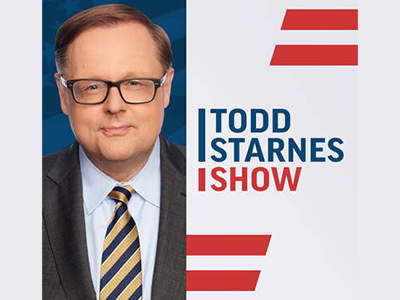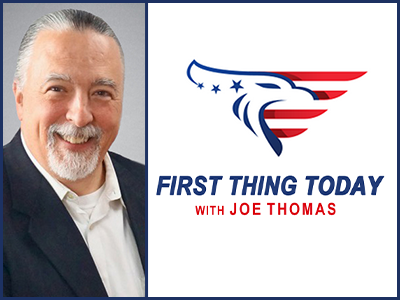Auto industry's check engine light flashes as Trump's tariffs hit
National News

Audio By Carbonatix
3:10 PM on Thursday, September 25
Brett Rowland
(The Center Square) – The stock of the largest seller of used vehicles fell more than 20% on Thursday after the company released lower-than-expected earnings the day after the the world's largest auto supplier announced job cuts.
CarMax reported a bump in sales when President Donald Trump was considering tariffs in March and April. But sales have slumped since then. Trump hit all foreign vehicles and auto parts with tariffs of 25% in May. Trump also hit almost all imported aluminum and steel with 50% tariffs.
CarMax Chief Executive Bill Nash said the company dropped its profit margin as the tariffs took hold.
"In the second quarter, we responded by lowering retail margin to drive sell-through, and we intentionally slowed buys to balance our inventory with sales," he told analysts on an earnings call Thursday.
He noted some car buyers are staying on the sidelines.
"The consumer has been distressed for a little while. I think there's some angst," Nash said.
CarMax reported overall vehicle sales fell 4.1% compared with the same period a year earlier. Net income fell 28% to $95.4 million. Comparable store used vehicle sales decreased 6.3% in the second quarter of 2025. Total retail used vehicle revenues decreased 7.2% compared the same time period in 2024. That was primarily driven by the decrease in retail used units sold, according to the company.
CarMax's earnings report comes a day after the world's largest auto supplier announced job cuts.
Germany-based Bosch Mobility said Wednesday it plans to cut about 13,000 jobs, particularly at its locations in Germany.
"Germany is and will remain central to Bosch, also in terms of the number of associates," said Stefan Grosch, member of the Bosch board of management and director of industrial relations. "However, we need to position ourselves more efficiently in order to hold our own in the face of tough competition around the world."
Markus Heyn, member of the board of management of Robert Bosch GmbH and chairman of the Mobility business sector, cited tariffs, among other challenges.
"Geopolitical developments and trade barriers such as tariffs lead to considerable uncertainty – and this is something that we, like all companies, have to deal with," he said. "We can expect to face even more intense competition."
Some experts say vehicle prices could continue to rise, inside and outside the U.S. market.
U.S. markets aren't immune to the tariffs because many of the vehicles assembled in the U.S. contain parts imported from Canada and Mexico. The highly integrated auto supply chains between the U.S., Canada, and Mexico have been linked for decades. Vehicles often cross the border multiple times before final sale in the U.S.
Analysis by Anderson Economic Group found more than $1.1 billion in tariffs was imposed on assembled vehicles from Canada and Mexico, and another $276 million was levied on auto parts in the month of July 2025.
"With over a billion dollars in tariff costs in just one month and for just two countries, the price shock will become impossible to ignore," said Patrick Anderson, principal & CEO of Anderson Economic Group.
Another warning light: First Brands, the auto-parts supplier behind products such as Fram oil filters and Anco windshield wipers, could be preparing to file for bankruptcy, according to court records. Carnaby Capital Holdings and several entities linked to First Brands filed for Chapter 11 proceedings on Wednesday, according to court records.
Detroit automakers have already been paying for tariffs for months. The Center for Automotive Research issued a report in April showing that American automakers Ford, General Motors, and Stellantis could face increased costs of more than $42 billion because of the 25% tariff on foreign automakers and auto parts.
In July, the American Automotive Policy Council, representing U.S. automakers, criticized Trump's trade deal with Japan.
"Any deal that charges a lower tariff for Japanese imports with virtually no U.S. content than the tariff imposed on North American built vehicles with high U.S. content is a bad deal for U.S. industry and U.S. auto workers," Governor Matt Blunt, president of the American Automotive Policy Council, said at the time.
Blunt was similarly critical of the United Kingdom deal for the same reasons.
Even before Trump's tariffs, cars were too expensive for many Americans. The average price of a new vehicle in the U.S. is above $48,000, according to Cox Automotive. Real median household income was $80,610 in 2023, according to the U.S. Census Bureau. However, more than 40% of new-vehicle sales by volume in 2024 were priced below $40,000.







